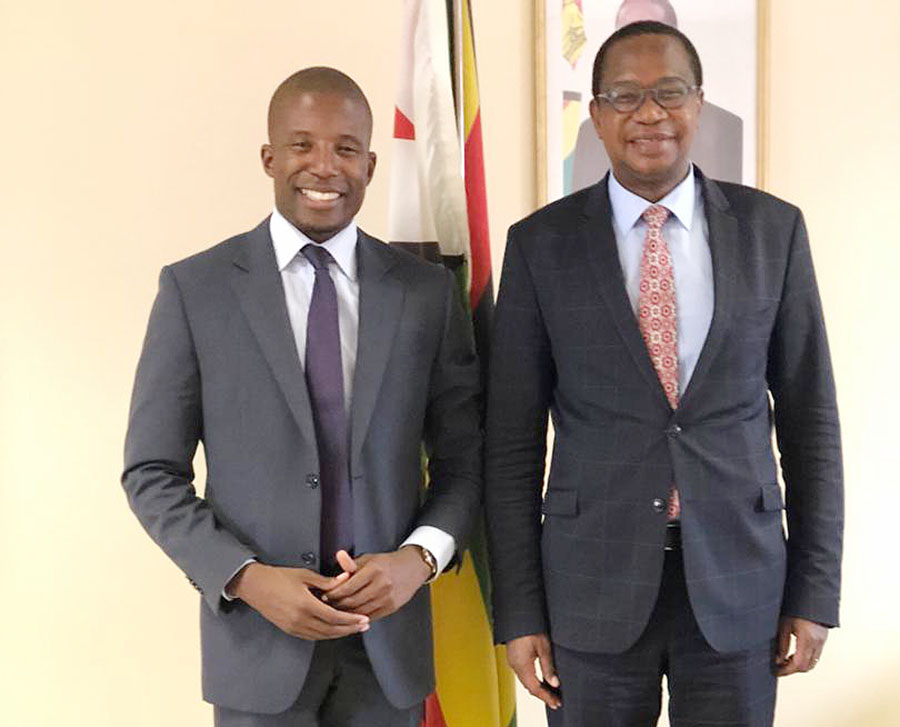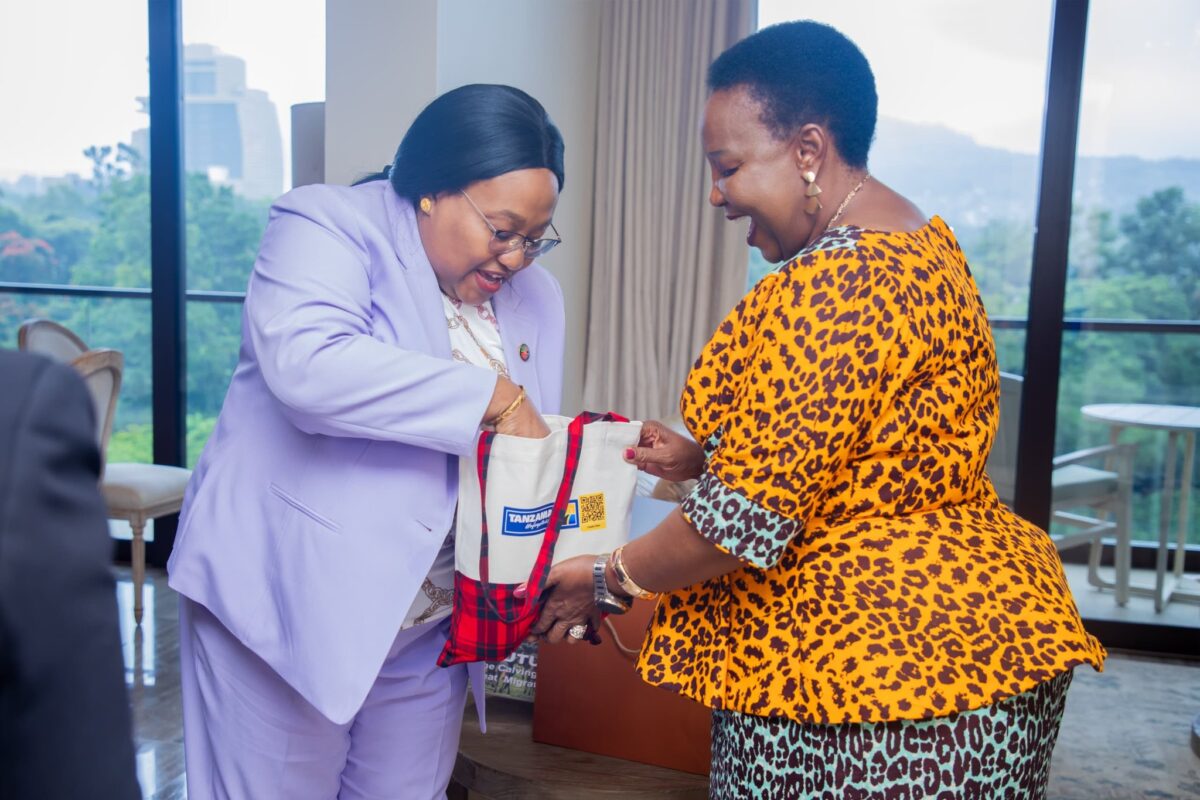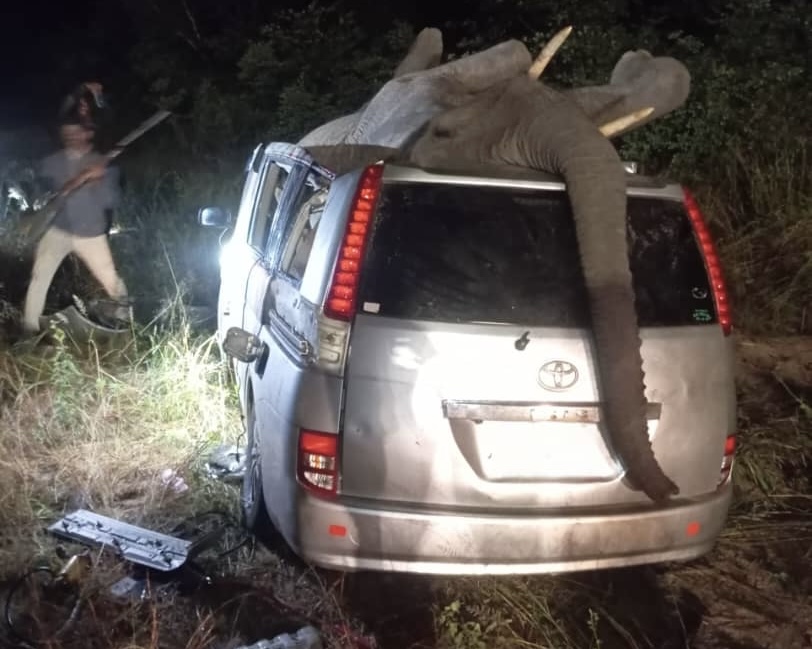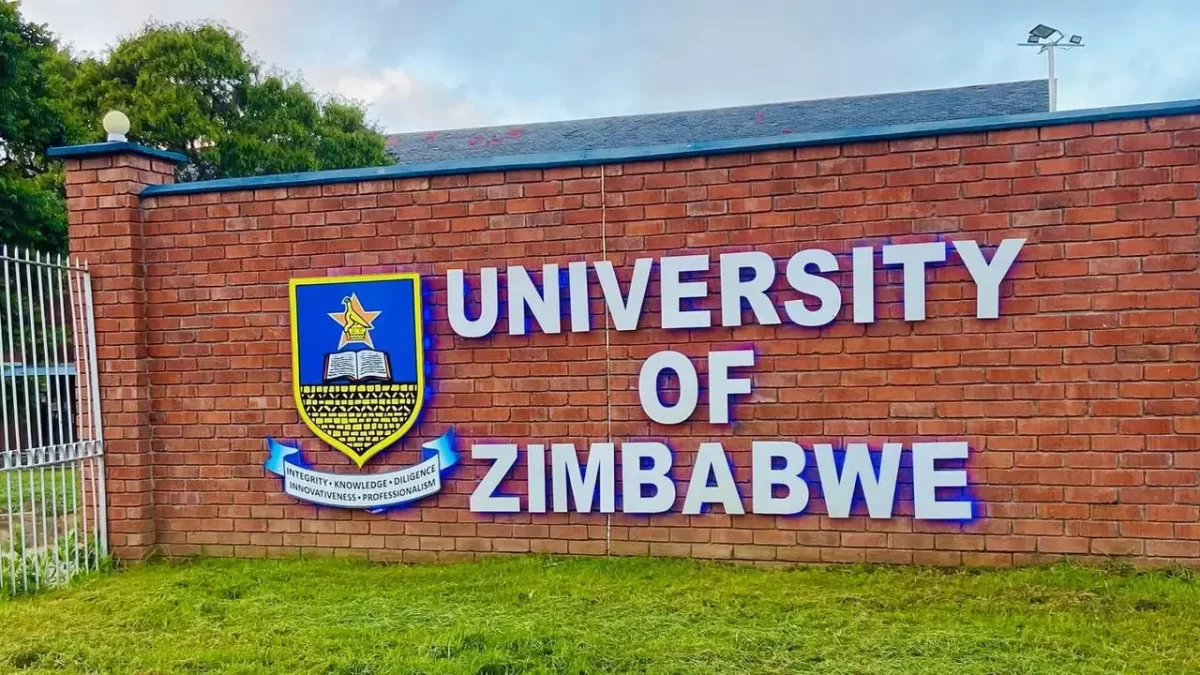HARARE – On Friday, October 19, in a boardroom at the Finance Ministry, Mthuli Ncube and his permanent secretary George Guvamatanga sat huddled with a small group of “communication experts”.
One of those present was William Gerald Mutumanje.
The Finance Minister expressed his frustration that his message was not getting through to the Zimbabwean people, as the worst economic crisis since 2008 deepens. He was frustrated in particular with the Information Ministry, not necessarily the Minister Monica Mutsvangwa, who had introduced Mutumanje to him. His antidote was to assemble a team of “media experts”, he told the room.
He had a list. On it were journalists and social media influencers. He wanted Mutumanje, who also goes by the name Acie Lumumba, to chair this new outfit to be called the “Communications Taskforce.”
Mutumanje was described as a “Senior Partner Stonesmith Advisory” and “Strategy Consultant”.
There were others, not all of them in the room. Musasiwa was a “branding and communications strategist and social activist”. Monalisa Dube (ZiFM radio personality and presenter); Christine Chitongo (Communications Director TradeKings); Xolisani Ncube (Senior Reporter NewsDay); Weldon Mutambo (Social Media Consultant and Communications Consultant) and Ruvheneko Parirenyatwa, who was described as “Director ORA Communications; Senior Broadcaster and Political Scientist”.
Ncube showed those present evidence of what he said was the movement of large sums of money through the banking system, which he was sure were going to the black market. Some $43 million had been moved by one individual, the boss of a major fuel company. At least $5 million had been processed by a prominent prophet.
Ncube told the room that these were powerful people who were protected by equally powerful politicians. He worried that they were fuelling the currency parallel market, and he wanted them exposed.
The taskforce, a source familiar with the developments told ZimLive, had been set up with the help of Mutsvangwa. The Information Minister had personally spoken to some of its members – and most of them had been chosen because they were perceived to have an unfavourable view of Vice President Constantino Chiwenga. This was important, because their activities would target associates of the powerful former army commander.
Mutsvangwa has displayed anti-Chiwenga bias in the recent past. On September 18, days after her appointment, she called a meeting with the Zimpapers board chairman Delma Lupepe and CEO Pikirayi Deketeke. She complained that Zimpapers was giving too much coverage to Chiwenga.
Now, her interests had converged with Ncube’s. The Finance Minister had recently told President Emmerson Mnangagwa that if he was serious about dealing with the parallel market, action had to be taken against Kuda Tagwirei, boss of Trafigura Zimbabwe, and some directors at the Reserve Bank of Zimbabwe, our source said.
Trafigura, registered in Singapore, entered the Zimbabwe fuel market after buying a 48,7 percent stake in Sakunda Supplies, owned by Tagwirei. It controls almost 70 percent of the fuel market through its Puma Energy service stations.
Ncube told Mnangagwa that since 2016, Tagwirei had been importing fuel duty free. He was getting United States dollars from the central bank which he used to pay for fuel imports, before selling the fuel at market prices in bond notes. The cycle would be repeated with Trafigura paying the RBZ in bonds at a rate of 1:1 to the United States dollar.
When RBZ ran out of foreign currency, Trafigura and Tagwirei would lend the apex bank money, sometimes in exchange for mineral rights mortgages.
“The minister also told Mnangagwa that Norman Mataruka, the director of bank supervision at the RBZ, had been offloading millions of bond notes to the parallel market,” our source said.
At that Friday meeting, Ncube was frustrated. A new prosecution unit established by Mnangagwa had tried to move on the central bank executives, but it appeared Chiwenga had used his contacts in Military Intelligence to stop any arrests.
“Ncube’s idea was this. He would pass information to the Taskforce, and the communications team had to find a way to get it out into the media through strategic leaks,” a source briefed on the meeting said.
“Ncube desperately wants the public on his side, and he thought public shaming of those he saw as impeding his attempts to reform the economy would trigger sufficient public anger, leading to investigations.”
Later that Friday, Ncube began signing letters of appointment, starting with Mutumanje’s – and the proverbial hell broke loose.
The internet went into meltdown, many questioning Ncube’s judgment in appointing a man made famous by a sex tape and with a history littered with episodes of betrayal and abuse of funds, notably at the Ministry of Youth.
Before the Taskforce had been fully assembled, and before their first strategy meeting, Mutumanje was already on a warpath. Two days later, on Sunday, he went on Facebook Live, but before that, he had left no-one in doubt about his new mission.
“Tonight, I will talk about the alarming levels of corruption sadly within my own Ministry. I have no idea how we allowed it to get this far. Might not have a job after this but the people deserve to know how their country is being run! See you on FBLive 9PM,” he tweeted.
That night, he took the war to the Reserve Bank, accusing its directors of running a foreign currency cartel. A mystery figure, one he was only brave enough to give the name of ‘Queen B’, had captured both Zanu PF and the government with proceeds from his “fuel cartel”. Queen B, it has since been widely reported, is Tagwirei who, earlier that day, had joined Chiwenga at his homestead in Wedza for a “thanksgiving mass”.
Chiwenga, still on sick leave, read the attack on Tagwirei as an attack on himself, and by the time Mutumanje’s screen went dark on Facebook, a war was raging on the phones. At “Shake-Shake Building”, the Zanu PF headquarters, the accusations of capture cut deep.
“Corruption should never be tolerated at all levels of government and society in general and it is every Zimbabwean’s responsibility to fight the cancer. However, the Finance Minister Mthuli Ncube through his ‘spokesman’ Acie Lumumba has decided to directly criticise government programmes particularly Command Agriculture under the guise of exposing corruption at the RBZ. This is unacceptable,” Lewis Matutu, the Zanu PF Youth League secretary exploded on Twitter.
Tagwirei’s Sakunda provided funding for Command Agriculture in an opaque scheme which the opposition has demanded must be investigated.
The Youth League advised Ncube to “be sober and responsible in difficult economic circumstances like these, to be mature and to remain focused on the revival of the economy.”
It was a stunning public rebuke, and privately, Ncube was being roasted by Chiwenga’s emissaries. By Monday, Ncube had been forced to cut his man loose – even as the Reserve Bank suspended four directors he had named as corrupt. A partial victory.
The other members of the Taskforce, having watched the fallout, ran to the mountains. Parirenyatwa said she had never been approached. Musasiwa also told ZimLive he had no idea he had been drafted.
“I don’t work for crooks, thieves and murderers. Give the baby his jiggies and we can all prosper,” Musasiwa said, the baby reference used for Nelson Chamisa, leader of the Movement for Democratic Change who maintains that he was robbed of an election victory in July.
Ncube told friends Mutumanje, whose hiring he conceded had been “inappropriate”, had moved too fast in a way that drew attention to himself.
“He felt Mutumanje had found a way to make it all about himself and in the end the key message was lost. These guys were given information, but Mutumanje became quite reckless about it. The Taskforce died a stillbirth,” an associate of the minister said, asking not to be named.
Ncube, just two months into his job, has drawn quite an impressive cast of enemies. The other player in the debacle, who may as yet find herself the target of reprisals, is Monica Mutsvangwa, whose husband, Christopher, has previously made clear his desire to break Trafigura and Sakunda’s dominance of the fuel market. Chris Mutsvangwa has his own investors waiting in the wings – Mining, Oil and Gas Service (MOGS) of South Africa, and an Abu Dhabi oil firm.
















